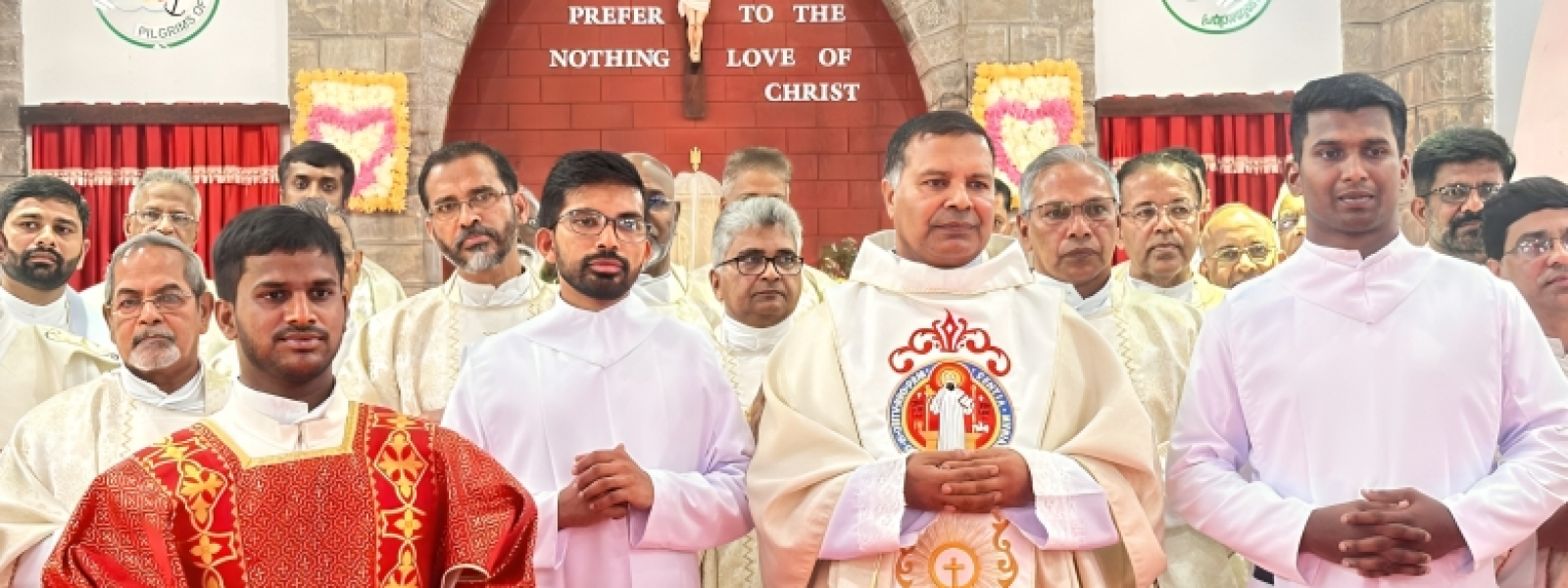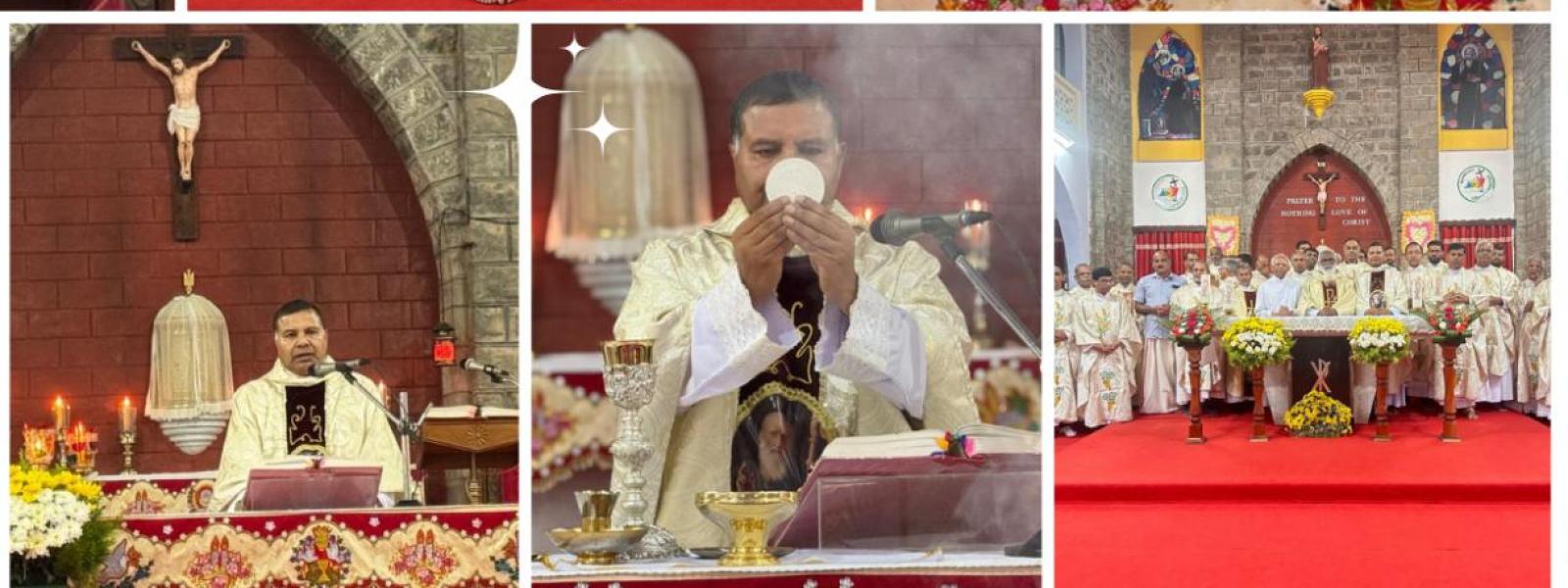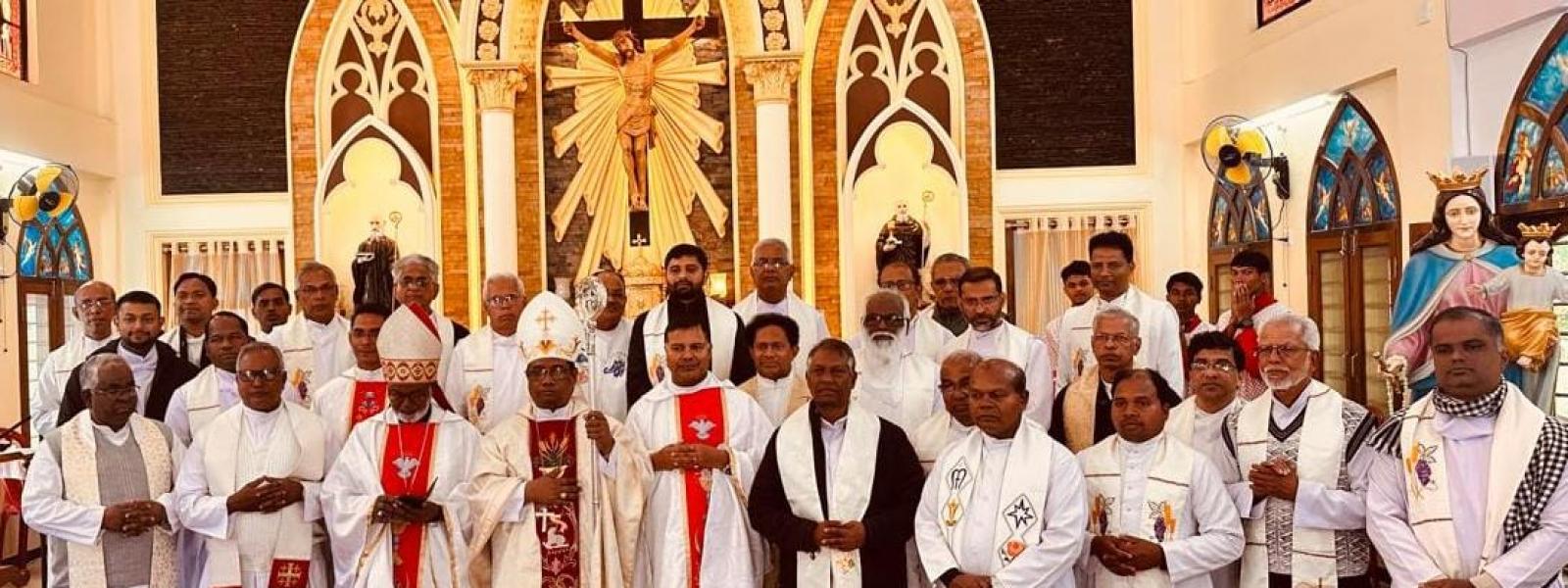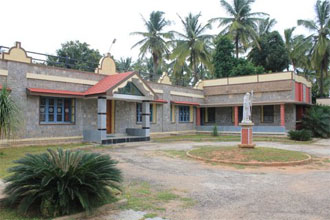Benedictines Makkiyad Welcomes You
St. Joseph’s Benedictine Monastery is a Conventual Priory of the Order of St. Benedict of Montefano, known as the Sylvestrines, founded by St. Sylvester Guzzolini(1177-1267). The mother house of this monastic congregation is located in Montefano, Fabriano, Italy, a place of historical importance in the annals of the Order. It is noteworthy that in 1248 the Holy See granted official recognition to this Congregation, thus consolidating its place within the wider Catholic Church.
Nestled in the picturesque hill district of Wayanad, on the north-eastern edge of the state of Kerala, India, St Joseph's Benedictine Monastery was founded in 1962. This serene retreat is strategically located at an elevation of approximately 700 to 2100 metres above sea level, offering a sublime setting amidst the mountains of the Western Ghats. Known as one of the most enchanting hill stations in the state of Kerala, India, this monastery offers a contemplative retreat amidst the breathtaking landscapes of the Western Ghats.
The Order of St Benedict of Montefano, now recognised as the Sylvestrine-Benedictines or simply the Sylvestrines, has a special status as a member congregation within the wider framework of the Order of St Benedict (Ordo Sancti Benedicti). This venerable Order is an integral part of the Benedictine Confederation, a network of monastic communities that adhere to the Rule of St Benedict. Adherence to the Rule serves as a unifying force among Benedictine communities worldwide, fostering a common commitment to the principles of prayer, work and community life.
As the custodian of the Sylvestrine tradition, St Joseph's Benedictine Monastery Makkiyad in Wayanad embodies the rich spiritual heritage and disciplined way of life prescribed by St Benedict. The monastery stands as a testament to the enduring legacy of St Sylvester Guzzolini and the wider Benedictine heritage, providing a haven for prayer, reflection and community life amidst the verdant hills of Wayanad.
Message From Conventual Prior
ADVENT
MESSAGE
My
Dear Confreres,
As we embark on
the sacred journey of Advent, a season of hope and grace, let us prepare our
hearts to welcome the arrival of Jesus. The time is ripe to open our doors,
both physical and spiritual, to receive His love and guidance. In a poignant masterpiece, the renowned artist Holman
Hunt depicts Christ standing in a serene garden, lantern in hand, gently
rapping on a door. Upon beholding the artwork, a friend of the artist remarked,
“Holman, it appears you have committed an error; the door you have rendered
lacks a handle.” The artist's response was profound: “No, my friend, this is no
mistake. For the door I have painted is the portal to the human heart, and it
is a door that can only be opened from within.”
Dear confreres,
the image of Christ standing outside and knocking resonates deeply, carrying an
eternal invitation: Open the door. Let me in. Allow Him to enter the
recesses of your life, each part illumined by His presence, guiding you toward
growth and flourishing. The Jesuit scientist Teilhard de Chardin grasped this
profound truth-the necessity of turning inward, of opening the door to our own
souls to behold the beauty and goodness within. Reflecting on his spiritual
journey, he remarked, “The deeper I descend into myself, the more I find God
at the heart of my being.” Thomas Merton, too, expressed this mystery, but
in his own way: “To find love, I must enter the sanctuary where it is
hidden, which is the mystery of God.” Thus, to open the door of our hearts
is to step into the boundless treasure of our own existence and encounter the
divine presence that dwells there.
So, shall we, dear
confreres, make a humble effort in this sacred season of Advent to unlock the
doors of our hearts to Him who stands knocking? Shall we meet the One who is
already seated within, waiting? The choice lies before us: to open or to remain
closed, to meet or to turn away. If we choose to open, then Life Himself will
be ours-the Giver of Life, our unfailing joy.
Warmest wishes to
you all for a blessed and meaningful Advent season, dear Fathers and Brothers!
May this sacred time of preparation bring you spiritual growth, renewal, and a
deeper connection with the Lord.
Conventual Prior
Our Monastery
St. Joseph's Benedictine Monastery at Makkiyad belongs to the Sylvestrine Congregation, a monastic reform movement in the Benedicitne monastic world that took place in the eastern-central Italy
Founded in the year 1973 in the Arch Diocese of Bangalore, Karnataka State, Vanashram is a dependent house of St. Joseph's Benedictine Monastery, Makkiyad.
Founded in the year 1982 in the Diocese of Gwalior, in the State of Madhya Pradesh, JeevanJyothi Ashram was a dependent house of St. Joseph's Benedictine Monastery, Makkiyad.
Founded in the year 1992 in the Diocese of Kannur, Kerala State, Benhill Benedictine Monastery is a dependent house of St. Joseph's Benedictine Monastery, Makkiyad.
Founded in the year 1999 in the Diocese of Dibrugarh, in the North Easter State of Assam, AshirsadanBenedicitne Monastery is a dependent house of St. Joseph's Benedictine Monastery
Founded in the year 1987 in the Diocese of Vijayawada, in the State of Andhra Pradesh, Navajeevan Benedictine Monastery was a dependent house and a foundation of St. Joseph's Benedictine Monastery.


















